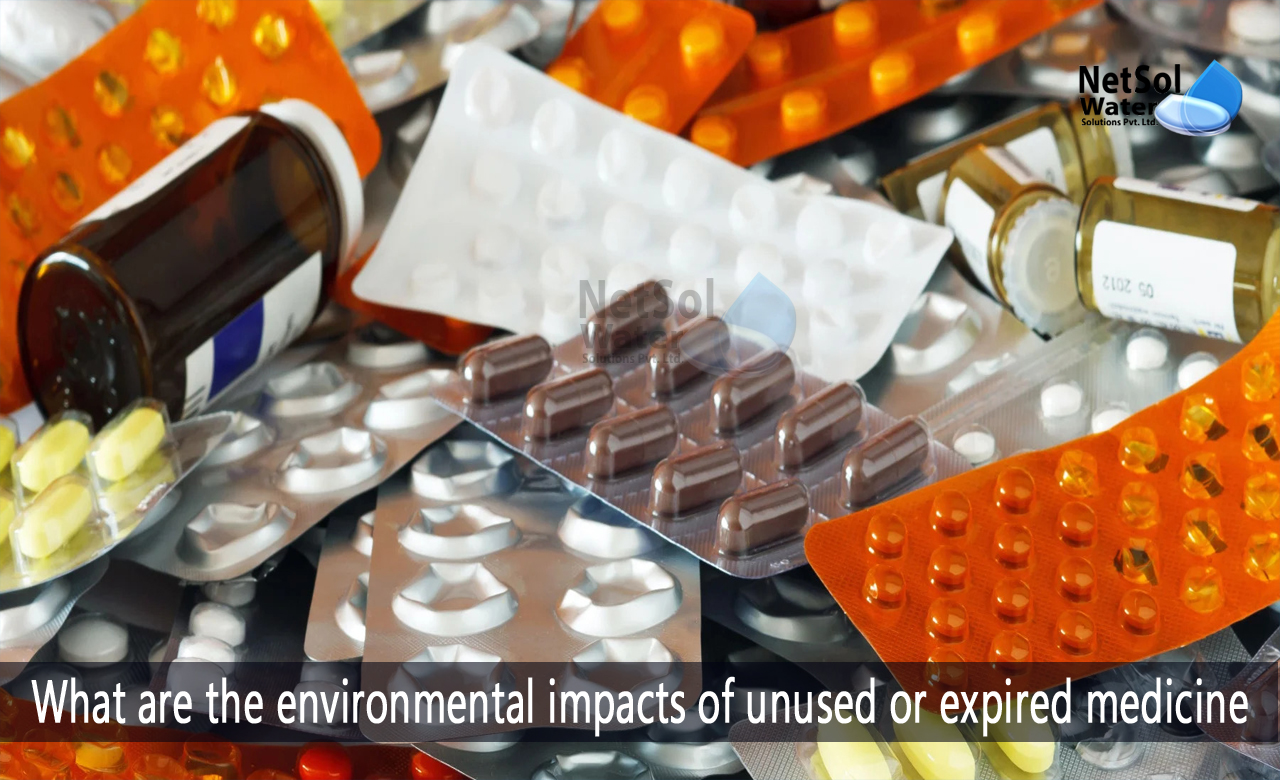Pharmaceuticals are widely regarded as necessary for maintaining human and animal health, but many of us overlook their impact beyond treating infections and disease. In fact, when medication residues enter the environment, they can become an environmental concern.
This can occur in a variety of ways, including improperly discarded unused or expired medicine, as well as after they are consumed and excreted. While, the latter is more difficult to address, the former is more straightforward.
What are the environmental impacts of expired medicine?
Household medicine is being discarded with volumes steadily increasing, due to increased consumption.
For a variety of reasons, household medications go unused. Early recovery, treatment changes, non-compliance, or prescription and purchasing errors, can all result in medicines going unused.
Unused or expired medicines pollute the environment and pose a public health risk
The improper disposal of unused or expired medicine is widespread, resulting not only in wasted healthcare resources, but also in significant environmental risks. Eco-toxicological studies show that pharmaceuticals have a negative impact on ecosystem health. Traces of oral contraceptives have been found to cause feminization, and reproductive failure in fish and amphibians, as well as psychiatric drug residues that alter fish behaviour.
There are also serious risks to human health if unused medicines are not safely stored and disposed of, such as accidental poisoning or intentional misuse. Furthermore, antibiotics that have been leaked can contribute to the development of antimicrobial resistant bacteria, rendering treatment ineffective and posing a serious risk to public health.
Steps should be taken to reduce and better manage pharmaceutical waste
1. When possible, avoid medication waste.
Shorter prescription cycles, prescribing smaller amounts, and adjusting packaging sizes all help to reduce the number of medications left over after recovery, or in the event of treatment changes.
Redistribution may also help to reduce medicine waste. While, these initiatives are still relatively niche and face challenges with quality assurance and counterfeits, they do exist.
2. Improve collection and treatment of unavoidable waste
It is impossible to completely eliminate medicine waste. Some patients may recover faster than expected, change their treatment, or fail to adhere to prescribed treatments. It is therefore critical to ensure proper collection, and disposal of this unavoidable medical waste.
3. Raise awareness
In many countries, such as India, public awareness of proper disposal routes is still low. Thus, well-targeted communication campaigns are required. Several EPR schemes require that a portion of the budget be spent on communication and outreach.
Furthermore, doctors and pharmacists play an important role in informing the public, about the proper disposal of their unused medications. One method of informing patients and consumers is to distribute information leaflets with products.
Conclusion
The presence of pharmaceuticals in the environment is a widely acknowledged concern around the world, and drugs have been detected as environmental contaminants in water and soil systems, posing risks to humans and wildlife. Drugs have been found in wastewater, groundwater, and even drinking water in several countries, including India, where the pharmaceutical market has grown in recent years.
Pharmaceuticals' negative, harmful effects on the environment range from the spread of antimicrobial resistance and species survival, to interference with reproduction and an increase in cancer incidence in humans. As a result, proper legislation is required to prevent these pollutants from entering the various environmental compartments.
How can we assist?
Netsol Water has aided in the resolution of hundreds of water-related problems, by utilizing a wide range of specialized water treatment and wastewater treatment technologies.
We will collaborate with you to design a customized water treatment solution, which meets your specific requirements, as well as an on-going service plan to completely or partially maintain your system.
Netsol Water is Greater Noida-based leading water & wastewater treatment plant manufacturer. We are industry's most demanding company based on client review and work quality. We are known as best commercial RO plant manufacturers, industrial RO plant manufacturer, sewage treatment plant manufacturer, Water Softener Plant Manufacturers and effluent treatment plant manufacturers. Apart from this 24x7 customer support is our USP. Call on +91-9650608473, or write us at enquiry@netsolwater.com for any support, inquiry or product-purchase related query.



